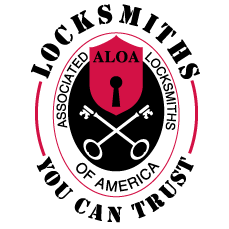It’s official; we’re in the dead of winter. It’s time to prepare to shovel driveways and break out the heavy jackets. Unfortunately, the increasingly cold weather can also cause functional issues with your home or business’s locks. For residences, commercial property, and especially cars, moist and cold weather can seriously affect the correct functioning of your locks. This can make it very difficult to open locks, or can even render them totally unsuable. In this post, I’ll talk about some tips that you can implement in order to protect your locks against Mother Nature.
Freezing Contraction, Warming Expanding
You might remember learning about the way that cold works on a molecular scale in school. Extreme cold causes molecules to contract – and heat causes them to expand. The molecules that make up locks and doors aren’t an exception to this – and just a slight change in their proportions can affect their proper functioning. If a lock is just slightly misaligned it can quickly wear out, or lose it’s functioning. That’s why having your locks correctly installed on doors ensures their longer life. If you have a lock installed on an outside wooden door, the level of professionalism with which the job was done becomes quickly apparent in warm or cold weather when the door expands or contracts slightly. As the wooden door expands or contracts, it can possibly misalign an improperly installed lock. If this occurs, it’s going to be necessary to hire a professional to restore it to proper functioning, regardless of the temperature outside.
Internal Automotive Deep Freeze
Expansion and contraction can affect your residential or commercial locks; however automotive locks aren’t usually affected like this, due to how their parts are structured. The main common issue for cars in cold weather is the freezing of locks. If any moisture gets trapped inside the lock – which can happen easily amidst ice, snow, sleet, and high winds – it can quickly freeze and solidify if the car is left outside in the cold for a long amount of time. The solution to this problem is somewhat more simple than the problems posed by the expansion and contraction of doors. Before contacting a locksmith, you can attempt to reverse or prevent a broken frozen lock. First, lightly heat up your car key before putting it into the frozen lock – remember not to make it too hot, as this method can potentially damage your key or lock if it’s improperly implemented. Your other option is to store your vehicle inside a garage or indoor holding area. By doing this, you can keep the car from getting so cold that the moisture on the inside of the lock will freeze and solidify. Automotive locks are more regularly exposed to freezing temperatures than other locks, as, for example, your home lock contains a side that remains inside your heated interior.
Depending on personal taste, some people love the winter for it’s coziness and pristine quiet, while others dread it for it’s extreme cold. Regardless of your feelings about the season, it’s wise to utilize these tips to prevent your personal or property’s security be compromised by extreme temperatures.


























